‘Refusing Is the Minimum’: Why These Israeli Teens Are Objecting to Army Service
PALESTINE - ISRAEL, 12 Sep 2022
Oren Ziv | +972 Magazine – TRANSCEND Media Service
2 Sep 2022 – Ahead of imprisonment, four conscientious objectors share their reasons for refusing conscription and their hopes of inspiring opposition to apartheid.
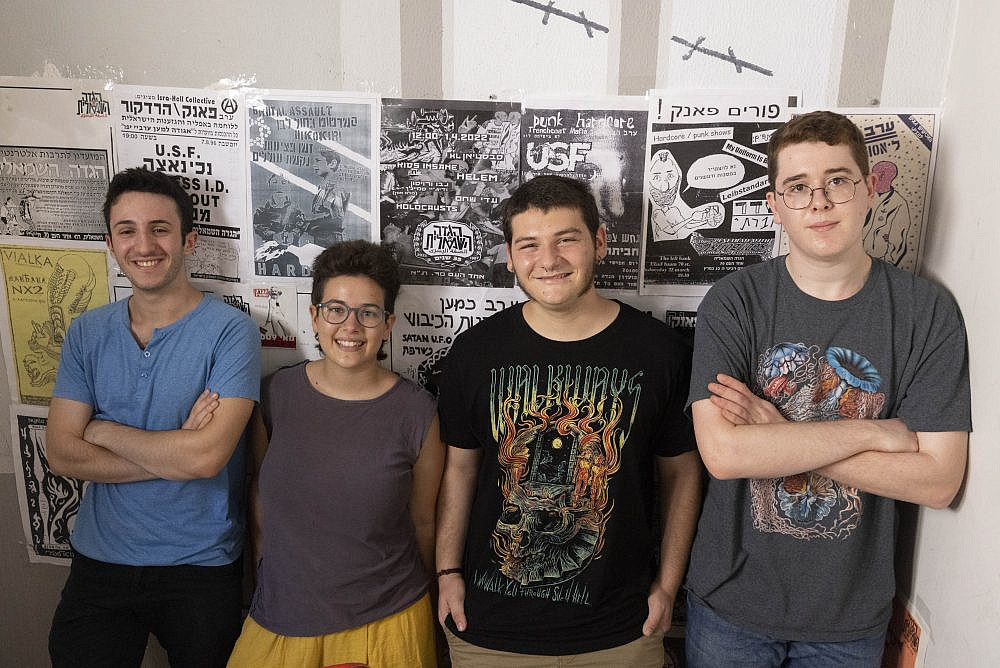
Left to right: Evyatar Moshe Rubin, Einat Gerlitz, Nave Shabtay Levin, and Shahar Schwartz, conscientious objectors refusing to enlist in the Israeli army, August 2022. (Oren Ziv)
On Sept. 4, four Israeli teenagers will arrive at the IDF Recruitment Center at Tel Hashomer in central Israel to announce their refusal to enlist in the army in protest of occupation and apartheid. Such a collective act by young conscientious objectors has become rare over the last decade.
One of the four, Shahar Schwartz, has already spent 10 days in military prison, after which he was released. The remaining three — Evyatar Moshe Rubin, 19, from Jerusalem; Einat Gerlitz, 19, from Tel Aviv; and Naveh Shabtay Levin, 18, from Hod Hasharon — will likely be sentenced on Sunday [4 Sep].
Military conscription is mandatory for most Jewish Israelis, both men and women, and refusal or evasion to enlist without the army’s approval is a punishable offense. Conscientious objectors, commonly nicknamed “refuseniks,” are typically tried at the Recruitment Center and sentenced to prison terms of between 10 and 21 days. Upon their release, they are called to report back to the Recruitment Center, where they usually announce again that they still refuse to enlist. Thus, refuseniks can often spend months in prison over several consecutive periods, until the army decides to discharge them.
Of the four, only Einat appeared before the IDF’s conscientious objectors committee, which refused to exempt her from service. This is not surprising, since there is only one civilian representative on the committee, and objectors who are openly motivated by their anti-occupation views are considered “political refusers,” and therefore do not receive exemptions. Shahar, Itamar, and Naveh cut contact with the army after receiving their induction order, and did not bother to appear before the committee.
“My main problem is with what the army is doing in the occupied West Bank and in Gaza, but when you say things like that in the committee, they call it ‘selective refusal’ and don’t give you an exemption,” explained Shahar. “I felt that if I didn’t say it, I would be doing myself an injustice.”
The four teenagers are being supported by Mesarvot, a grassroots network that brings together individuals and groups who refuse to enlist in the Israeli army in protest of the occupation.
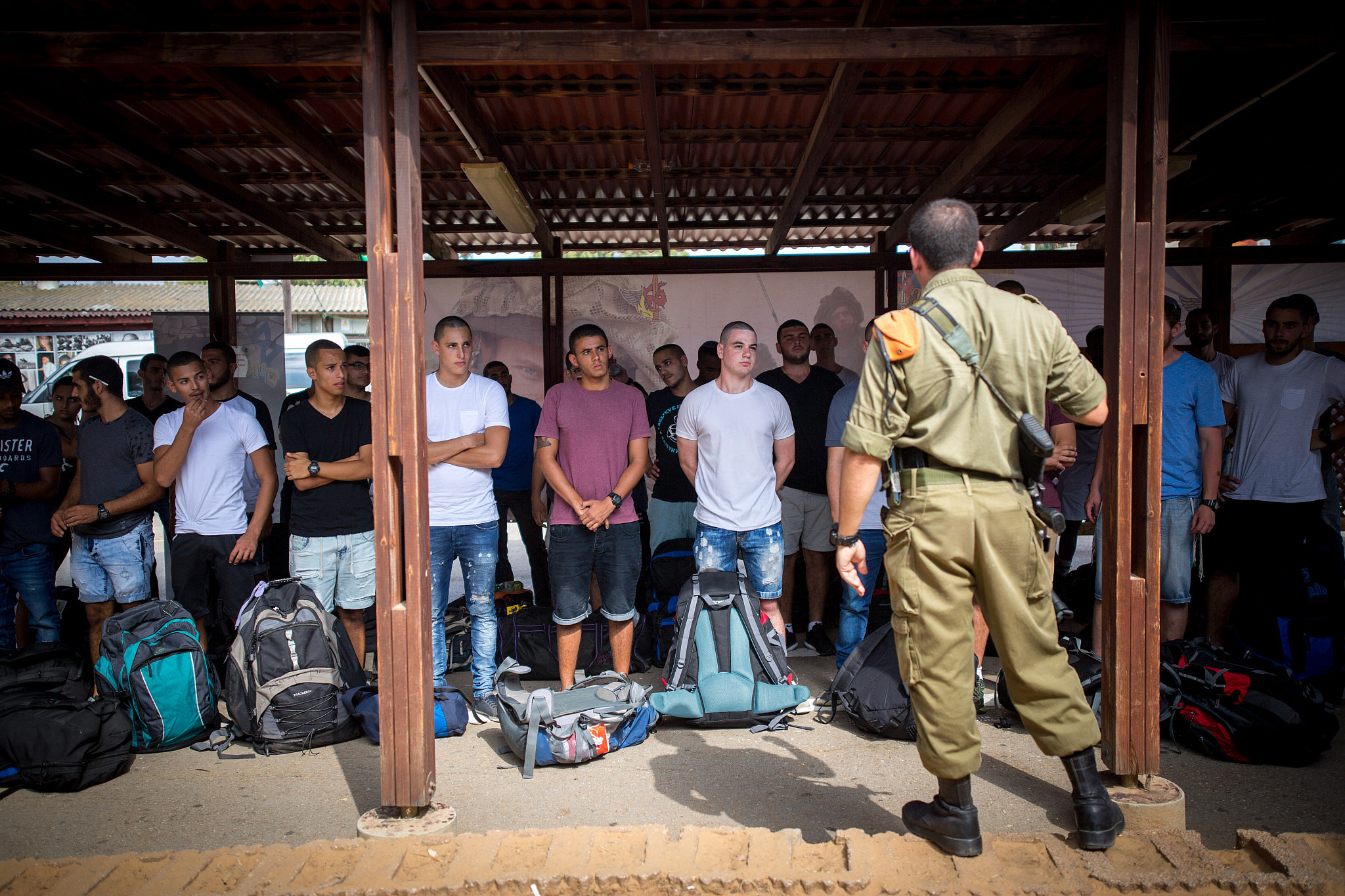
+972 met with the four conscientious objectors in the weeks before their impending imprisonment to speak about their decision to refuse, their families’ reactions, the chance of sparking a debate about the occupation among Israeli Jews, and their concerns about life behind bars. The interview has been edited for length and clarity.
Why did you decide to refuse?
Einat: “Conscientious objection is a rather silenced phenomenon; it took me a while to discover it. I was active in the youth protest against climate change. I connected very much with Palestinian girls who took part in the protest, and I learned from them about the Palestinian narrative, beyond the Zionist narrative I grew up with. It made me look into things and ask questions. I realized that there was no way I could serve in an army that for decades has been responsible for a violent regime.”
Shahar: “Before high school, I participated in the ‘Seeds of Peace’ summer camp for Israelis and Palestinians. I heard from the Palestinians about how the army makes their lives miserable. You can watch videos on the internet, but it’s more impactful to hear from a girl my age how once in a while the army enters her school and destroys their daily routine, or from a boy my age who tells how every time he wants to leave his city to visit relatives, he has to go through a humiliating process at a checkpoint for hours. It only reinforces the understanding that it’s not possible [for me to serve] anymore.
“I didn’t make the decision to refuse until the last few months, because I thought about avoiding [serving in the occupied territories] and serving in a role that was less combat-oriented, less related to the occupation. I came to the conclusion that if I join the army, regardless of the role, I am still part of an organization that has been oppressing the Palestinians for decades.”
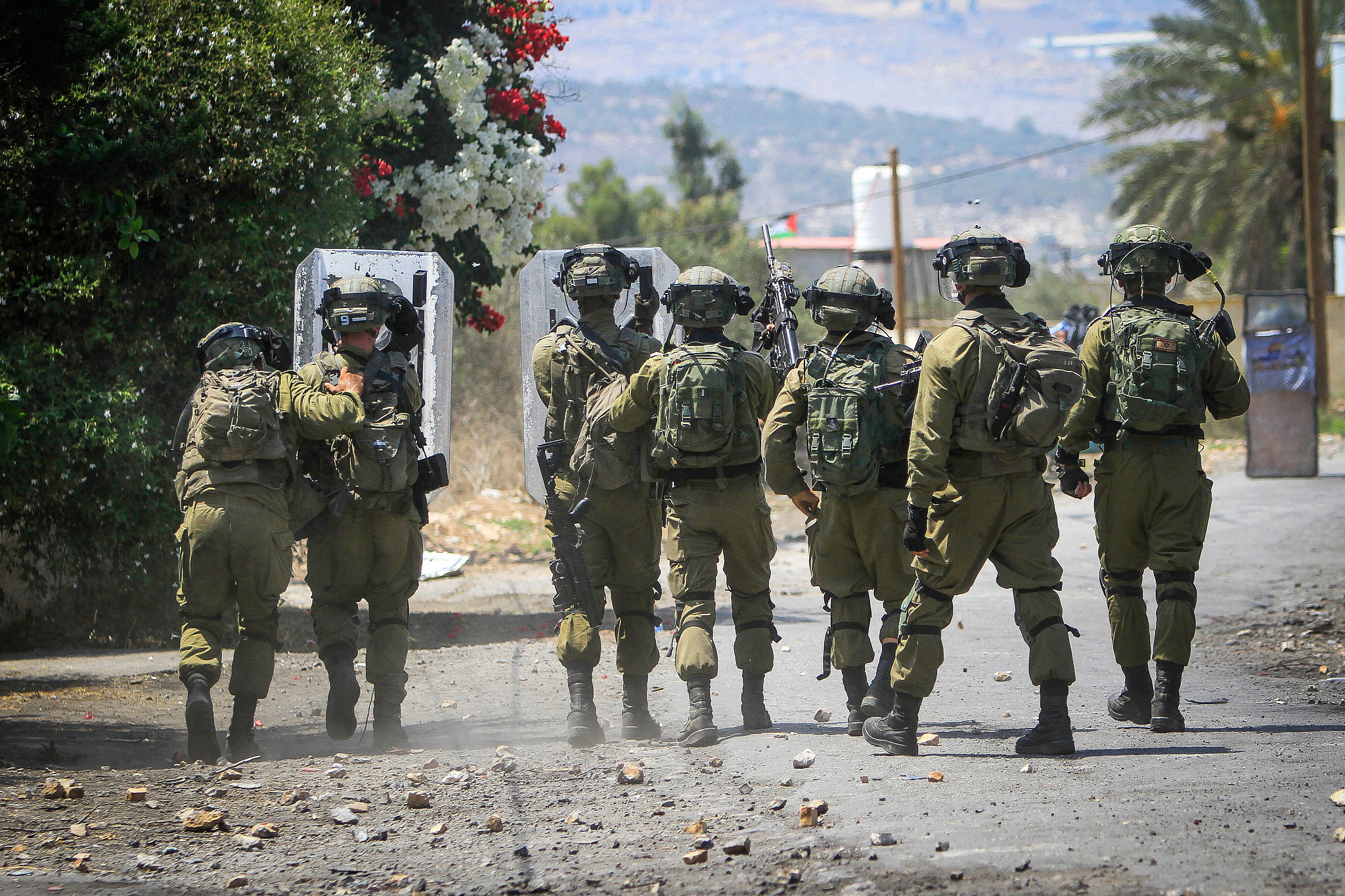
Naveh: To a certain extent, I grew up in the army. My father was an officer and would take me to the base on weekends. I grew up in this reality. I would hold weapons, look at machine guns, and collect bullet casings. On the other hand, my mother would provide me with the counter-narrative — a more left-wing angle. I grew up in both of these realities until I started researching on my own. I went to demonstrations and saw apartheid in reality, not simply in theory.
“I didn’t know the option to refuse existed. I thought that if I had to, I would ask to be exempted, until someone asked me whether I would refuse to serve if I didn’t receive an exemption. I said I hadn’t thought about it yet, and made a mental note to check what this meant.
“The more I saw the behavior of the army and the state — first during the Balfour protests [against former Prime Minister Benjamin Netanyahu] and then in Sheikh Jarrah — the more I decided that I cannot remain silent or take part in oppression and apartheid.”
Evyatar: “I decided to refuse because the main goal of the army is the ethnic cleansing of non-Jews, as they do in Masafer Yatta. This is something I cannot abide by — neither ideologically nor morally. That’s why I choose not to serve.
“I was a person who was very immersed in books and the internet, and this led me to be involved in left-wing sites. As much as I had doubts, I thought that [we are] the only democracy in the Middle East, that the army is doing its best. But I saw more and more of the killing, and I asked myself why I agree [with international leftists] about LGBTQ+ issues and everything else, and only when it comes to Israel do we disagree. I realized that it was because I grew up and was educated here, and that if I were who I am anywhere else in the world, I would agree with them on Israel as well.”
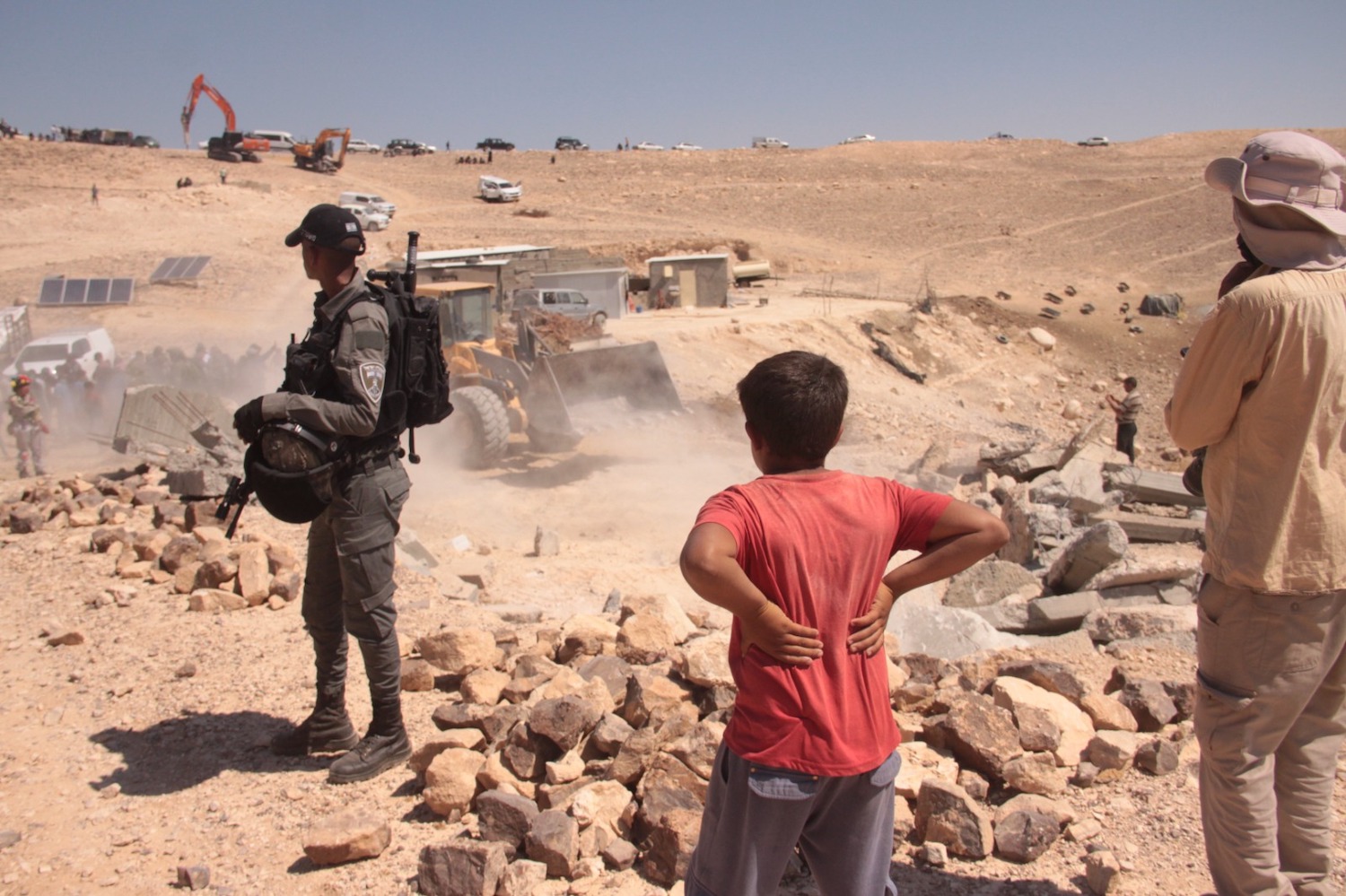
How have your friends and family responded to your decision?
Naveh: “I am in an environment that does not agree with my decision, but is supportive. I have many conversations, some more pleasant than others. I am surprised by my right-wing friends who say that they ‘really respect’ my choice and support it. It is very difficult for my family. My father comes from a bereaved family; it is difficult [for him] that I oppose the state and the army.”
Shahar: “My friends support my decision to follow my conscience. Some people find it more difficult, those who think that I am violating the basic values [of the state]. No one in the family wants their child or grandchild to go to prison. But they know that I have to choose for myself. This is the first decision I am making as an adult, and they respect that.”
Einat: “I received mixed reactions. On the one hand, some have an appreciation for the conscious decision to go to prison. On the other hand, some are accusing me of being selfish — as if doing this was an easy choice. I think our choice to refuse expresses a great social responsibility. Both Evyatar and I took part in national service, where they talked a lot about criticism and making change. Then comes the enlistment into the army and everything is put on hold; they say that political life begins after the army. The decision whether to enlist or refuse is the first big political choice in our adult lives.”
Evyatar: “My immediate family, my parents, didn’t encourage me to refuse enlisting, but they always wanted me to think about the weak and the oppressed. They understand. Even from the right wingers who objected [to my decision], I didn’t hear any personal criticism.”
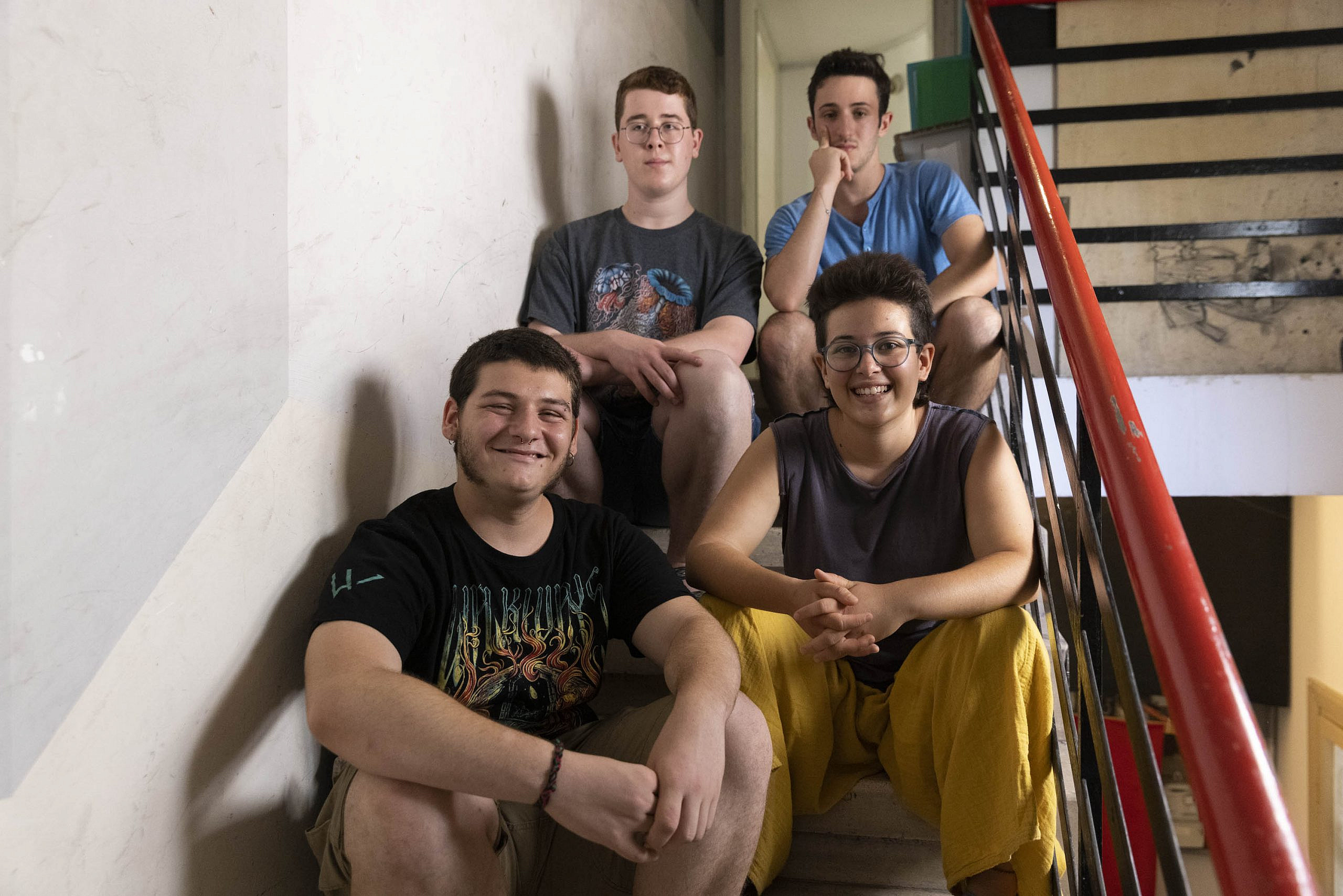
In the current political situation, where the youth is moving more and more to the right, do you think it is possible that your refusal can influence young people?
Einat: “The importance of conscientious objection is the desire to make young people ask questions. We must not take anything for granted; we need to look beyond the narrative we grew up with. In the struggle over climate change the situation was different — it is much more in the consensus. Refusal is more unusual, it’s far less present in the public sphere. That’s why it was important for me to do it in a public way rather than finding other avenues to get out of the army.”
Evyatar: “Just as it is possible to educate [the public] that all the Arabs want to destroy us and that there is no partner [for peace], it is also possible to educate people about the truth. The change will happen when young people will not only hear 90 percent right-wing voices and another 10 percent very right-wing voices, but rather more humanist voices. Refusing to enlist is the minimum. It’s possible that what I do will not make a difference, but I hope that over the years the number of refusers will increase, and this will be able to change the [public] mood.”
Shahar: “The main problem is that the army is not presented as something right wing, but rather as something that is inherent to the state, that precedes politics. In all my time in the education system, there was not a single year without a soldier coming to speak to our class. Each of us who refuses pushes those who are close to them — and even those who are not close — a little bit to the left, or at least [pushes them] to look into this possibility. The four of us have no illusions that we will change the opinions of our entire generation or that we will bring about the end of the occupation, but I can at least open the minds of my close friends and acquaintances.”
Did the fact that Israel was governed by a “government of change,” which included center-left parties, over the last year, influence your considerations?
Einat: “We just had another round of war in Gaza. I don’t see a big difference between the previous governments and what is happening now. A thousand people are at risk of expulsion in Masafer Yatta. My refusal process started before this government was formed, and after it fell apart I still think the exact same thing.”
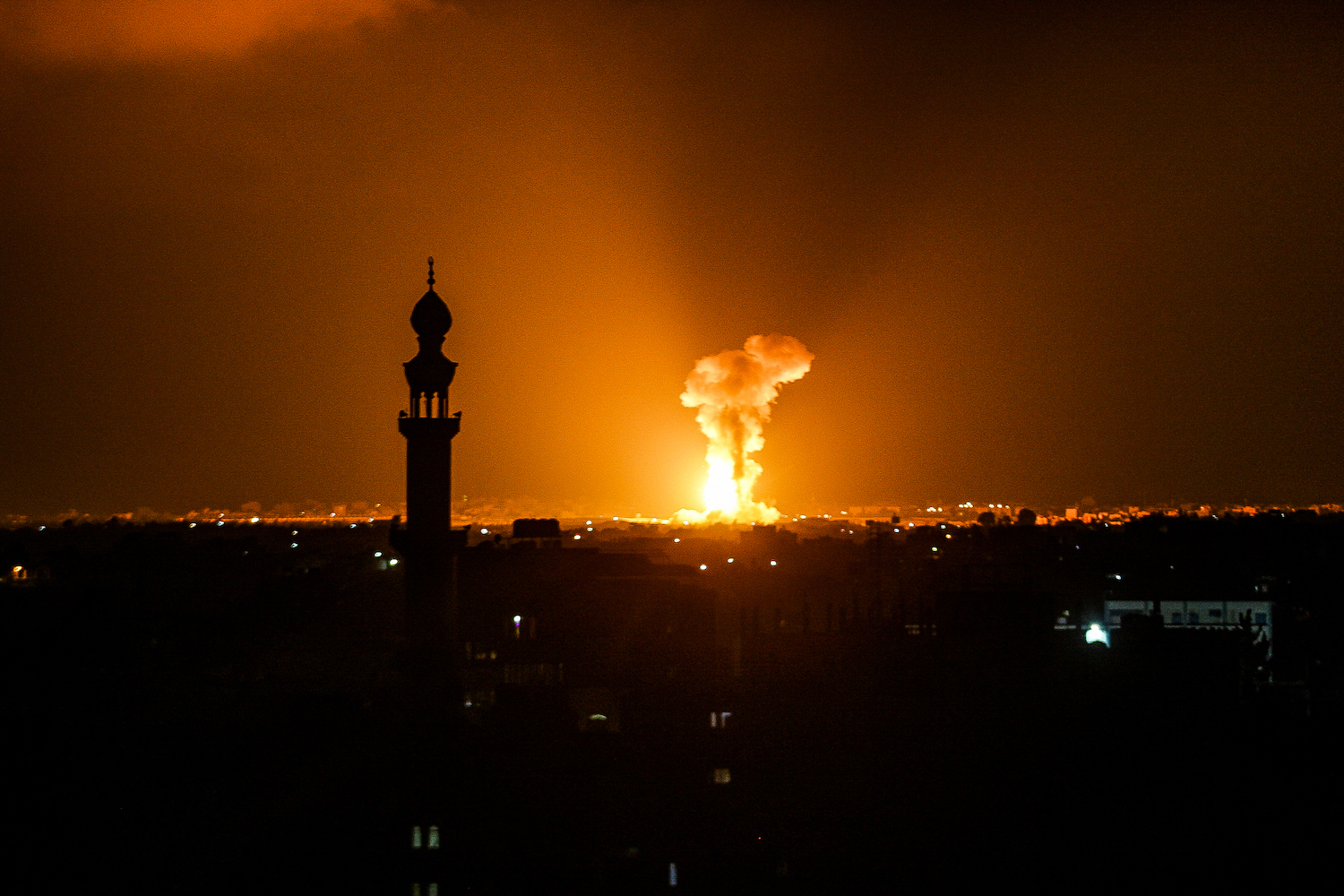
Evyatar: “I also made the decision to refuse before the last government was formed. But the current government is more dangerous. There is a perception that Netanyahu and Itamar Ben-Gvir are demons, but the same crimes are taking place under Lapid. Lapid and the political center whitewash the crimes and make resistance to them more difficult.”
Shahar: “The government, which was closest [in its makeup] to the left over the last decades, was right wing when it came to economic and security issues. This shows that voting in elections every few months won’t bring about the necessary change. If I want to make a change, I have to do it myself.”
What was the effect of seeing the reality of occupation on the ground?
Shahar: “Seeing with one’s eyes is stronger than reading. To see the separation barrier, to see how the police conduct themselves in Sheikh Jarrah, how they stop a Palestinian boy who walked down the road for a second while on the other side right-wing activists are standing and doing far more serious things — cursing and trying to attack [protesters] — while the police turn a blind eye.”
Naveh: “In Sheikh Jarrah, I saw the Salem family crying every week because they do not know if they will be allowed to continue living in their home. I spoke with the Salhiyeh family, whose house was demolished. On the other hand, I saw the settlers constantly protesting outside the home, threatening me and others. Most of my understanding of reality came from the internet, but there is something about seeing and hearing these things. It opens the heart, and creates a connection that is hard to come by online. I was also in Masafer Yatta. I saw the extent to which the army and the police do not care that settlers from outposts throw stones at Palestinan shepherds.”
In addition to opposing the occupation, are there other reasons for your refusal?
Shahar: “The crimes the army commits is the main thing. Another is that [army service] made our society very militaristic. All the adults were in the army, and this greatly affects the conduct of the society.”
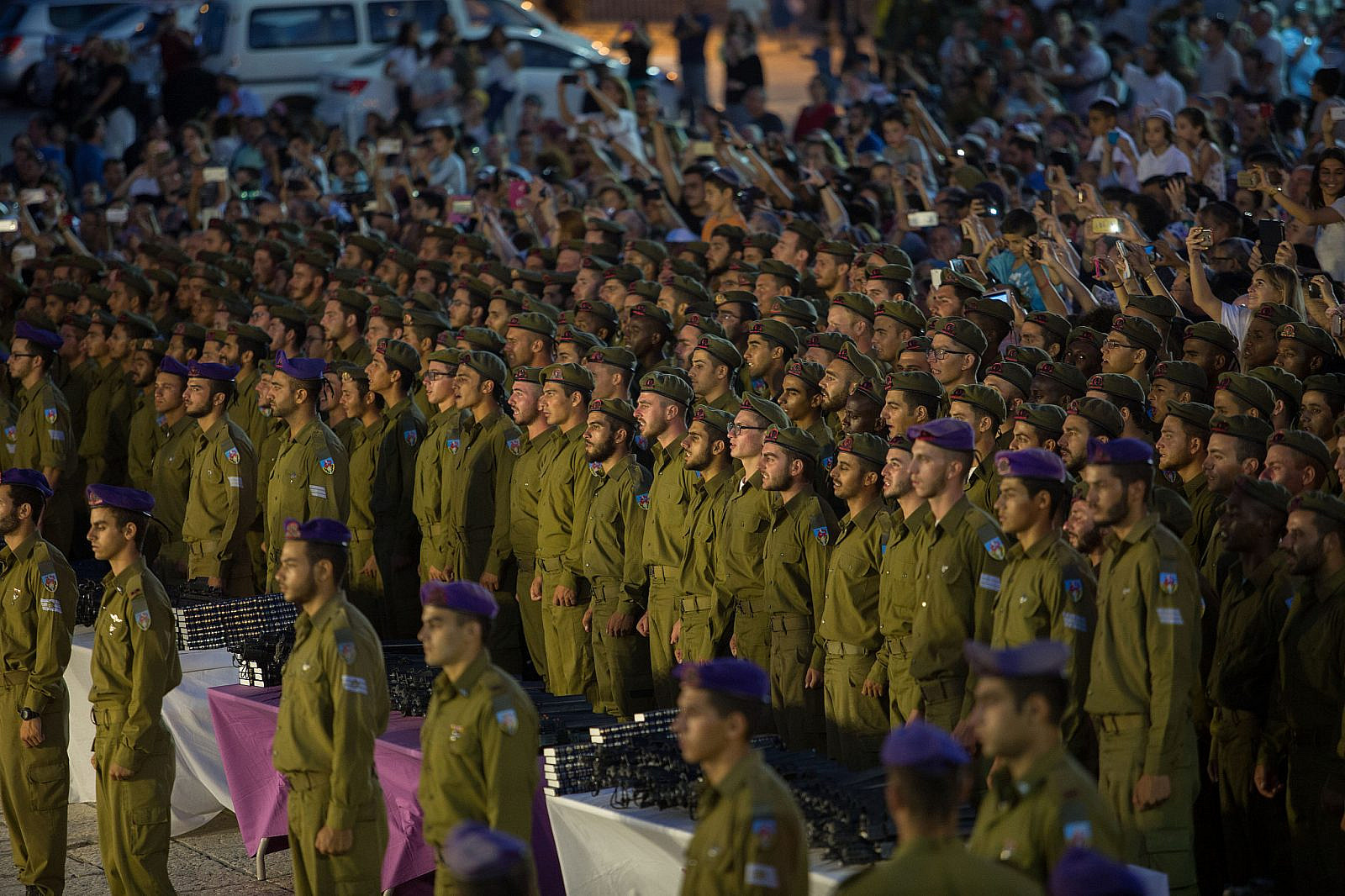
Einat: “Queerness is one of the things that led me to refuse. LGBTQ identity makes it possible to look at things from a different point of view — not to take reality for granted. I was offered to serve with the IDF Radio, in education, positions that are considered good ones. But there is no difference between serving in education, as an office clerk, or a combat soldier. Everything is part of the same system.”
Naveh: “The decision to refuse came from my personal radicalization process, but today I can say that I come to this issue as a communist. I oppose class separation between Jews and Palestinians. I see how the powerful and the wealthy profit from war crimes and the suffering and death that both Palestinians and we experience.”
Evyatar: “It’s part of something bigger. All our lives we’re taught about nationalism, and how dangerous it is. But when it comes to Israel, there are ‘chosen people.’ I did not know Palestinians personally. I read history books, and I saw that even [Israeli leader] Moshe Dayan said that there was not a single Jewish settlement that did not previously sit atop an Arab village. I oppose racial segregation.”
Do you have any concerns or plans for the time you will be in prison?
Einat: “I was able to speak to Shahar Peretz, a conscientious objector from last year. It is very scary to have my freedom taken away from me, but I believe in my decision, and if this is the price, I will go with it to the end.”
Shahar: “Everything I will go through is less than what Palestinians go through in their entire lives. It is worth temporarily losing freedom in order not to be part of more serious human rights violations.”
Naveh: “I decided to refuse at the beginning of my junior year in high school. I had a lot of time to sit with the decision. After a lot of pressure and fear and conversations with other conscientious objectors, in a certain sense I’m already anticipating it.”
____________________________________________________
This article first appeared in Hebrew on Local Call. Read it here.
Oren Ziv is a photojournalist and a founding member of the Activestills photography collective.
Tags: BDS Boycott Divestment Sanctions, Conscientious Objector, Cultural violence, Direct violence, Ecocide, Gaza, Genocide, Israeli Apartheid, Israeli Army, Israeli occupation, Middle East, Nakba, Palestine, Palestine/Israel, Sociocide, State Terrorism, Structural violence, Violent conflict, West Bank, Zionism
Join the BDS-BOYCOTT, DIVESTMENT, SANCTIONS campaign to protest the Israeli barbaric siege of Gaza, illegal occupation of the Palestine nation’s territory, the apartheid wall, its inhuman and degrading treatment of the Palestinian people, and the more than 7,000 Palestinian men, women, elderly and children arbitrarily locked up in Israeli prisons.
DON’T BUY PRODUCTS WHOSE BARCODE STARTS WITH 729, which indicates that it is produced in Israel. DO YOUR PART! MAKE A DIFFERENCE!
7 2 9: BOYCOTT FOR JUSTICE!
DISCLAIMER: The statements, views and opinions expressed in pieces republished here are solely those of the authors and do not necessarily represent those of TMS. In accordance with title 17 U.S.C. section 107, this material is distributed without profit to those who have expressed a prior interest in receiving the included information for research and educational purposes. TMS has no affiliation whatsoever with the originator of this article nor is TMS endorsed or sponsored by the originator. “GO TO ORIGINAL” links are provided as a convenience to our readers and allow for verification of authenticity. However, as originating pages are often updated by their originating host sites, the versions posted may not match the versions our readers view when clicking the “GO TO ORIGINAL” links. This site contains copyrighted material the use of which has not always been specifically authorized by the copyright owner. We are making such material available in our efforts to advance understanding of environmental, political, human rights, economic, democracy, scientific, and social justice issues, etc. We believe this constitutes a ‘fair use’ of any such copyrighted material as provided for in section 107 of the US Copyright Law. In accordance with Title 17 U.S.C. Section 107, the material on this site is distributed without profit to those who have expressed a prior interest in receiving the included information for research and educational purposes. For more information go to: http://www.law.cornell.edu/uscode/17/107.shtml. If you wish to use copyrighted material from this site for purposes of your own that go beyond ‘fair use’, you must obtain permission from the copyright owner.
Read more
Click here to go to the current weekly digest or pick another article:
PALESTINE - ISRAEL:
